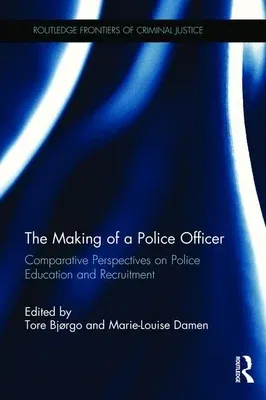Does a more academic type of police education produce new police
officers that are reluctant to patrol the streets? What is the impact of
gender diversity and political orientation on a police students' career
aspirations and attitudes to policing? These are some of the questions
addressed by this longitudinal project, following police students in
seven European countries. The unique data material makes it possible to
explore a wide range of topics relevant to the future development of
policing, police education and police science more generally.
Part I presents an overview of the different goals and models of police
education in the seven participating countries. Part II describes what
type of student is attracted to police education, taking into
consideration educational background, political orientation and career
aspirations. Part III shows the social impact of police education by
examining students' orientations towards emerging competence areas;
students' career aspirations; and students' attitudes concerning trust,
cynicism and legalism.
The overall results show that police students are strikingly similar
across different types of police education. Students in academic
institutions are at least as interested in street patrolling as students
in vocational training institutions. Gender and recruitment policies
matters more in relation to career preferences than education models.
The national context plays a more important role than the type of police
education system. Written in a clear and direct style, this book will
appeal to students and scholars in policing, criminology, sociology,
social theory and cultural studies and those interested in how police
education shapes its graduates.

